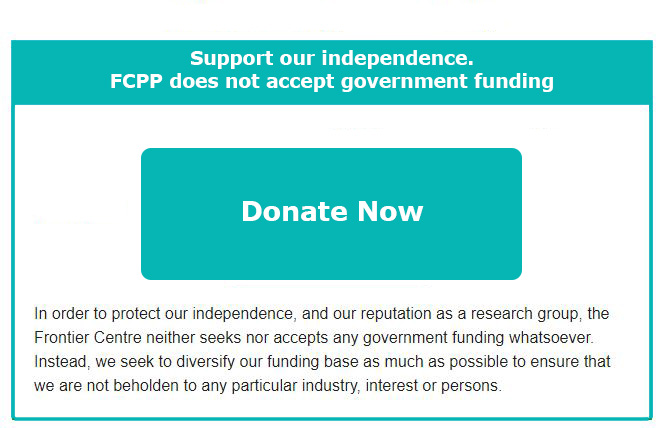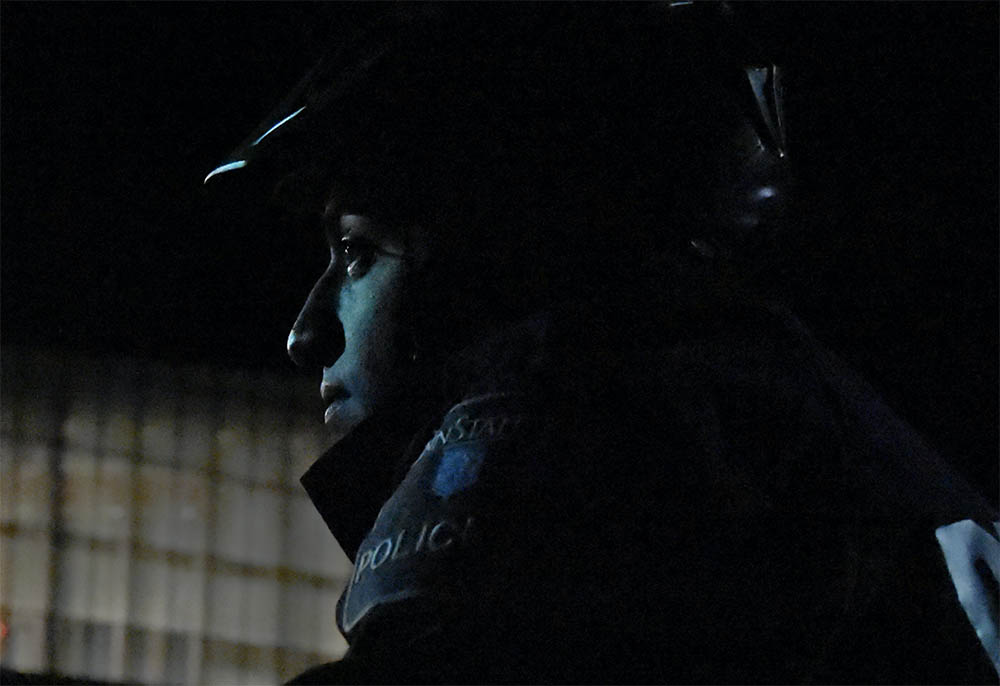There has been tremendous scrutiny and criticism of policing in recent months. Policing has been the lightning rod for widespread protests, a window into the failings of systemic processes and structures that have sustained otherization and marginalization, and highlighted the incompetence and misconduct of a few unfairly reflected on the entire profession.
It has become second nature to take on policing as a monolithic profession, to blame all of policing for the delinquency of a few, and it’s been easy to overlook the good. But overlooking the good is neither fair nor justifiable. The majority of officers join policing for all the right reasons, and despite the unseen vitriol of criminals, witnessing unspeakable carnage and violence, humanity at its worst, the vast majority of police officers continue to try and make their communities better places for everyone.
Policing is amongst the most important institutions of a democratic society; it is amongst the central pillars without which democracy and freedom could not exist, and yet the vast majority of us have taken our police services for granted.
We ask our police officers to guard us against violence, against those who would take our property, harm our loved ones, those who would cross the line by driving drunk, speed recklessly, or interfere with our enjoyment of our property and privacy. We ask our officers to do the unthinkable, to infiltrate violent gangs and terrorist organizations, to operate in the shadows to dismantle human trafficking operations, pedophile groups, extremism – and all in secrecy and out of sight of those of us who don’t want to know or be defiled with the details.
In the process, officers will encounter dismembered bodies at accident scenes, senseless violence, domestic violence, the tears of parents and small children separated from their loved ones, addicts who have nothing left to live for, victims of pedophilia, young girls forced into prostitution, and tragic suicides. These are the ugly realities of humanity, which, we would rather believe belong in someone else’s world. But these are the realities that police officers encounter daily.
Policing, particularly front-line policing has become the dumping ground for our worst moments, for our expectations of how we want society to treat us, and for many of our disappointments. And unlike the rest of us, these officers have to wash themselves off of the physiological residue and return to their own homes, children, and spouses. This takes a toll: the unpublicized psychological damage, the unpublicized suicides, and damaged relationships amongst police officers that remain largely hidden, and concealed from public scrutiny.
Much is expected of police officers. Most of us only encounter a police officer over something comparatively superficial, a traffic stop, reporting a theft, a break and enter, or stolen property, perhaps a noise or neighbour dispute; and when we do, we expect to be treated as if the incident were the crime of the century. Here is something to be said about walking in another’s shoes.
We have also forgotten that policing represents a social contract between the police and the communities they serve. Citizens commit to the standards they, as a society, want to characterize their values. The police are contracted to uphold these values on behalf of society. This is not, as it has now evolved to become, a one-sided contact. Both the police and citizens have a role and responsibilities to play. The role of citizens and the obligations of citizens to society too should be part of the examination of where we want to end up as a society.
Too much of what defines right and wrong today is determined by what the rules and law allow, loopholes, and exemptions. Every advantage is extracted until it becomes an abuse, at which time we enact another rule or law. Societies have come to rely so heavily on governance and legislation that self-sanctioning and normative compliance have been eroded to a point that anyone who does not take advantage, seize the competitive edge, can expect to be left behind with only themselves to blame.
The adversarial nature of democratic institutions and the criminal justice system, and the litigious propensity of every opportunity have eroded our sense of moral direction, of the common good, of self-sacrifice, and social justice. We have even had to legislate protections for good intentions: the Apology Act to protect expressions of sympathy or regret involving unfortunate encounters between citizens; the Good Samaritan Act to protect a person who renders emergency medical services or aid to an ill, injured or unconscious person, at the immediate scene of an accident or emergency. Rules and laws are inevitable and necessary in any social context, but their proliferation, and society’s reliance on laws to guide, control, and sanction conduct is not a sign of progress; it is rather, a measure of the failure of society to moderate itself.
It is into this context that policing is thrust; an increasingly complex, complicated, and adversarial society. None of this is to excuse the actions that have highlighted the failings of policing in recent decades, or the systemic barriers, which have resulted in the marginalization of too many. Policing can and must do better, but the fault is not entirely of the man or woman in uniform, on the front-line.
These are, mostly, people just like you and I who lead lives, have families, wants and needs just like the rest of us. The big difference is that we have almost unrealistic expectations of their abilities. We expect these men and women to remain unaffected by what they encounter, to be gentle and compassionate on the one hand and tough and fearless on the other, to always be at their very best, and flawless.
The reality is very different; new recruits are young, inexperienced about life, and unaccustomed to responding to the unimaginable permutations of problems and conflicts to which they will respond. Their success is determined as much by their character and ability as by the systemic structures of support, training, supervision, and training. Many of the dysfunctional consequences manifest in policing today are the result of systemic failures, organizational culture, and performance expectations within which these officers find themselves.
Front-line policing has become a tinder box; yet few will understand what it means to be alone in a back street fight with a violent offender, injured while executing one’s duties, confined by a dangerous moment alone in an undercover project behind a locked fence, conducted surveillance without sleep or rest, been challenged by situations where one might have had to use a use of force option, or been falsely accused of misconduct.
When faced with protests, riots, and worse, officers will place themselves between danger and safety. They won’t be thinking about their families or Sahra’s kindergarten recital the next day; they will do their duty. There is little, in fact, nothing, good officers can do about the mess that incompetent colleagues and bad leadership have created; all they can do is be there.
It is assumed that leadership exists on the top floor of police headquarters – not so. The top floor of police headquarters is the Monday morning quarterback’s realm, where managers in the safety of their confidentiality, counsel of lawyers and public relations experts, and the resources of the entire organization calculate the after-action response.
The leadership moments occur at midnight, in a back laneway where an officer turns a corner and is forced to make an instantaneous decision about what she observes, the use of force response, to shoot or not shoot, the potential of collateral damage, and all without time to deliberate, without the aid of policy and procedures, case law, or the advice of his supervisor, or legal counsel.
What headquarters is responsible for is ensuring that front line-officers are provided with the tools, training, and ability to make that leadership decision. And when the front-line officer fails, is incompetent, or incapable, or even corrupt, then that is the responsibility of management as much as the officer.
We, society, can do better in being careful not to colour all policing with the same brush stroke. There are good and bad people in every profession, and we are correct in our expectation that policing should endeavour to be flawless, impartial, and reliable; but we too must do our part to recognize those that work hard, make sacrifices, and continue to demand more of themselves and of us.
All these too need to be said. While it has been easy to critique and challenge police policies, it must not be forgotten that we owe much to the good police officer, whom we rely on every day to keep us safe, to make the societies we live in, particularly here in Canada, the place we are so proud to call home.
This is a thank you, and a call out to all the good dedicated men and women on the front-lines; thank you for your service.
Anil Anand is a Research Associate with the Frontier Centre for Public Policy. Anil served as a police officer for 29 years; during his career some of his assignments included divisional officer, undercover narcotics officer, and intelligence officer. He has worked in Professional Standards, Business Intelligence, Corporate Communications, the Ipperwash Inquiry (judicial public inquiry), and Interpol.
Photo by Natalie Runnerstrom on Unsplash.



